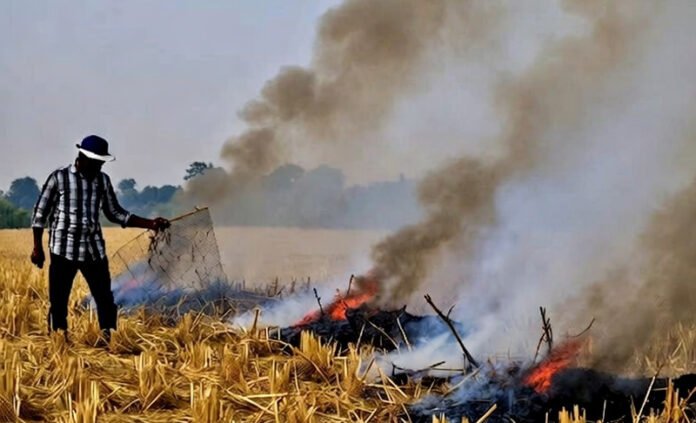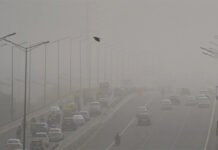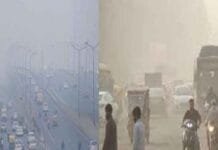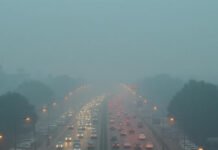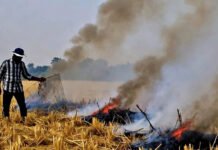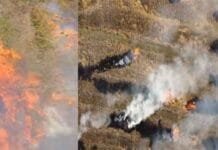Punjab’s Moga Battles Rising Farm Fires as Stubble Burning Clouds the Air
Moga, Punjab: Widespread stubble burning in Moga district has triggered multiple farm fires, causing a sharp rise in air pollution levels across the region. Officials said the incidents, linked to paddy residue burning, are spreading smoke to nearby fields and villages, raising serious environmental and health concerns.
Satellite data and ground reports indicate a significant increase in fire counts compared to the previous week, adding to the seasonal challenge that northern India faces each post-harvest period.
🔥 Smoke Spreads Across Fields
Farmers reportedly began burning leftover paddy straw after harvesting, citing the high cost of alternative disposal methods. The resulting smoke has reduced visibility in parts of Moga, Ferozepur, and adjoining areas.
The IMD noted that calm winds and dry air are allowing pollutants to linger, worsening air quality in the region.
🗣️ Officials Issue Warnings
District authorities have appealed to farmers to avoid residue burning, warning of penalties under environmental laws. Several awareness campaigns and subsidies for Happy Seeders and other eco-friendly machinery are being promoted to tackle the issue.
“The air quality is dipping rapidly. We’re increasing surveillance and enforcement to prevent further burning,” a senior Punjab Pollution Control Board (PPCB) official said.
🌍 Broader Impact
The AQI (Air Quality Index) in parts of Punjab and nearby Haryana has entered the ‘poor’ to ‘very poor’ category, with forecasts suggesting a further decline if fires persist.
Environmental experts warn that continued burning could aggravate respiratory issues and contribute to the smog buildup over Delhi-NCR in the coming days.

